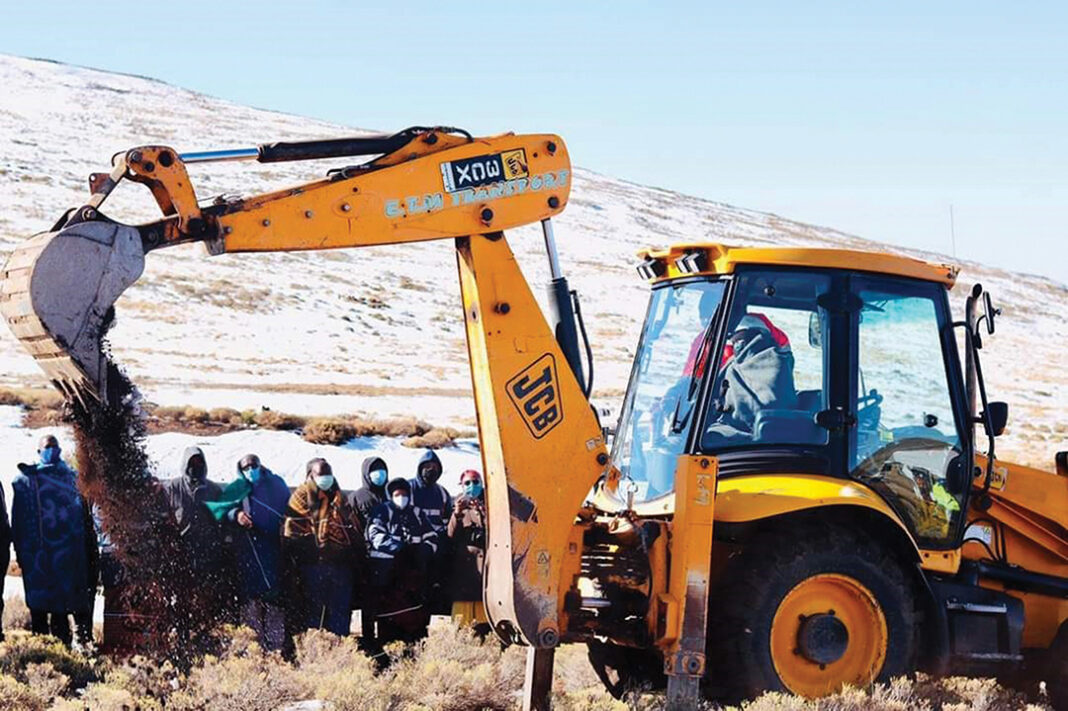By Tebello Sarele
No nurse, nursing assistant or lay person should be in the pharmacy while pharmacists and pharmacy technicians are roaming in the streets.
What’s the government’s plan for the human resource capacity of pharmacy departments in public health facilities when NGOs’ withdraw their support? When pharmacists and pharmacy technicians go, who is going to provide pharmaceutical services to patients? Are medicines going back into the hands of nurses and lay people? Are we not moving two steps backward? Implication on patient care?
While it is dictated by the provisions of the Medical, Dental and Pharmacy Order 1970 that every pharmacy establishment whether public or privately owned should be run and managed by a pharmacist full time as long as the establishment is operational, this has never been the case in all health sectors including the public sector. Over the years, despite the evident need for the Ministry of Health to review their staffing pattern of the pharmacy, nothing has been done to address gaps brought by low human capacity of the pharmacy. While over 15 years ago, the challenge of human resource capacity in the pharmacy was that there was no pharmacy school in Lesotho, and local pharmacists were trained in other countries, in recent years, this is not the challenge. Over the years, the National University of Lesotho has produced graduates since 2007; one would have thought that those graduates would be absorbed to improve patient care in the public health sector, but no, not in Lesotho.
The Government of Lesotho through the Human Resources Development and Strategic Plan 2005-2025 that was published in 2004 developed “an establishment list”, which stipulated minimum requirements in terms of human resource capacity for all healthcare workers including pharmacists in the public health sector. This establishment list was devised following the needs assessment for human resources capacity in the pharmacy and it revealed disparities in engagement of qualified pharmacy personnel (pharmacists and pharmacy technicians) both in CHAL and MOH facilities. It was used as a tool to guide staffing patterns as a way to respond to human resource challenges of that time, with some projections for up to 2025. For the pharmacy department, the necessary reviews of the human resource capacity is the only hope for assuring good stewardship of medicines and consequent safety of patients. It is shocking that although this list has been reviewed for all other professional cadres; doctors, nurses, nursing assistants etc. no such reviews have been made for the pharmacy cadre. While the establishment list was used as a guiding tool in those days when pharmacists were scarce in the country; it is needless to say that it doesn’t make sense to use that tool as a guide for staffing patterns in 2021! Surely the human resources needs of the public healthcare system today are more than those of the past.
In recent years, different NGOs have provided support through hiring pharmacists and pharmacy technicians to work in public health facilities. One would have thought that when the NGOs withdraw their support as a result of funding challenges, the government of Lesotho would absorb that workforce to prevent interruption of good quality pharmaceutical care. Among the NGOs, there is one that contributed almost 90% of the total number of pharmacy personnel in the primary health facilities. There is no thought as scary as realising that when these qualified pharmacy personnel lose their jobs in September 2021, we will be going back to square one? Isn’t it scary that when these pharmacists and pharmacy technicians go, patients in most public primary health clinics will be given medicines by nurses, nursing assistants and lay people who have only an informal training on medicines and safety despite the number of Basotho Pharmacists who have been through the coffers of this vulnerable Basotho nation? What’s the plan that the government has in place to ensure that when the NGOs stop providing support in terms of human resources capacity in the pharmacy? Are medicines going to go back in the hands of nurses, nursing assistants and lay people while pharmacists and pharmacists roam in the streets unemployed? What is more abominable than that?
We are all watching how the Ministry of Health will allow such, how they will deliberately choose to perpetually put the lives of our people in danger. Never should such a thing happen! The Pharmacy is the practice space for Pharmacists and pharmacy personnel, and not nurses, nursing assistants and lay people. Let medicines be in the rightful hands!









